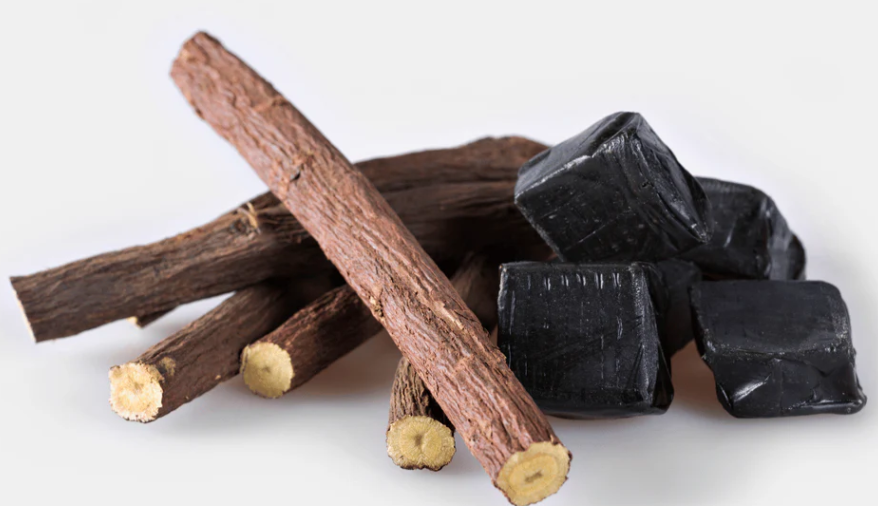Useful information
Licorice benefits
Licorice benefits. Root has been used for centuries in traditional medicine due to its powerful anti-inflammatory, antiviral, and immune-boosting properties. It contains numerous bioactive compounds that help treat respiratory issues, digestive disorders, hormonal imbalances, and skin conditions.
1. Composition and Active Compounds
Licorice root contains over 300 bioactive compounds, making it one of the most versatile herbal remedies. The key components include:
- Glycyrrhizin – A natural sweet compound (50 times sweeter than sugar) with strong anti-inflammatory and antiviral properties.
- Flavonoids – Potent antioxidants that protect cells from oxidative stress and improve circulation.
- Saponins – Help loosen mucus and promote expectoration.
- Phytoestrogens – Plant-based compounds that help regulate hormones.
- Essential oils – Contribute to licorice’s soothing effects on the digestive and respiratory systems.
2. Key Health Benefits of Licorice
2.1. Respiratory Health and Cough Relief
Licorice is widely used to treat respiratory conditions, including coughs, bronchitis, and sore throats.
🔹 How it works:
- Helps thin mucus, making it easier to expel.
- Reduces inflammation and soothes irritated airways.
- Fights respiratory infections by inhibiting virus replication.
👉 How to use: Drink licorice root tea or take licorice syrup to relieve coughs and soothe the throat.
2.2. Strengthens the Immune System
Licorice contains antiviral, antibacterial, and antifungal properties, helping the body fight infections.
🔹 How it works:
- Stimulates the production of interferons, which help combat viruses.
- Inhibits the growth of harmful bacteria, including Helicobacter pylori.
- Supports the body’s natural defense system.
👉 How to use: Consume licorice tea or supplements, especially during cold and flu season.
2.3. Supports Digestive Health
Licorice is a well-known remedy for gastrointestinal issues such as acid reflux, ulcers, and indigestion.
🔹 How it works:
- Increases mucus production in the stomach, protecting it from acid damage.
- Helps heal gastric ulcers and reduce inflammation.
- Aids in digestion by soothing the stomach lining.
👉 How to use: Take deglycyrrhizinated licorice (DGL) supplements or licorice tea to support digestive health.
2.4. Regulates Hormonal Balance
Licorice contains phytoestrogens, which can help balance hormone levels, particularly in women.
🔹 How it works:
- Supports adrenal gland function, helping to manage stress.
- Helps regulate menstrual cycles and alleviate menopausal symptoms.
👉 How to use: Licorice tea or supplements can be beneficial for hormonal health, but prolonged use should be monitored.
2.5. Heart and Cardiovascular Health
Licorice contains flavonoids that help maintain heart health and improve circulation.
🔹 How it works:
- Reduces oxidative stress and inflammation in blood vessels.
- May help lower bad cholesterol (LDL) levels.
- Improves blood circulation.
👉 How to use: Licorice tea or extracts can support cardiovascular health when used in moderation.
2.6. Skin Health and Wound Healing
Licorice is used in many skincare products due to its ability to lighten dark spots and reduce inflammation.
🔹 How it works:
- Has anti-inflammatory and antibacterial effects that help treat acne, eczema, and dermatitis.
- Reduces hyperpigmentation and brightens the skin.
- Promotes wound healing.
👉 How to use: Apply licorice extract topically or use skincare products containing licorice root.
3. How to Use Licorice
- Add 1 teaspoon of dried licorice root to 1 cup of boiling water.
- Let it steep for 10–15 minutes.
- Strain and drink up to twice a day.
🔸 Licorice Syrup
- Commonly used for cough relief and sore throats.
🔸 Capsules or Extracts
- Available as dietary supplements for digestive, immune, and hormonal health.
🔸 Topical Creams
- Used for skin conditions and hyperpigmentation.
4. Side Effects and Precautions
While licorice is beneficial, excessive consumption can lead to health risks:
⚠️ Can raise blood pressure – People with hypertension should avoid high doses.
⚠️ May cause potassium depletion – Prolonged use can lead to an electrolyte imbalance.
⚠️ Not recommended during pregnancy – Can affect hormone levels.
⚠️ Can interact with medications – Consult a doctor if you are taking blood pressure or heart medications.
5. Conclusion
Licorice is a powerful herbal remedy with numerous health benefits, including respiratory support, digestive relief, immune strengthening, and hormonal balance. It is available in various forms, such as tea, extracts, and supplements. However, moderation is key to avoiding side effects. 🌿💛
